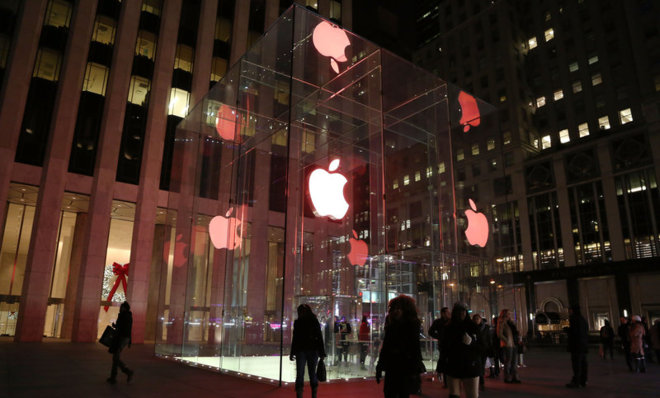Is 2014 the year Apple becomes a luxury brand?


A free daily email with the biggest news stories of the day – and the best features from TheWeek.com
You are now subscribed
Your newsletter sign-up was successful
Late last year, Apple hired Angela Ahrendts, the CEO of Burberry — that Burberry — to be its senior vice president of online and retail stores. The proximate reason: Apple's public facing displays had grown tired, perhaps easily emulated by Sony, Microsoft and, soon, Samsung. Tech writers who covered the announcement correctly focused on what Ahrendts did for the sturdy British fashion house's sales.
Less noticed, or observed, was the context of the Burberry turnaround itself. I think Ahrendts's hiring tells us something else about Apple's goals for the near future. The company not only wants to refurbish its stores and web portals but also wants to make them more fashionable, more stylish, and by extension, Apple products more luxurious. I believe that Apple intends to focus on the prestige of its products, especially as it moves into wearable tech, even as it makes a play for a middle class market primarily interested in function.
Before Ahrendts, Burberry had become a victim of its own success. Its iconic color swatches became so popular that the company began to use it everywhere, and its exclusivity, its cachet as a luxury brand, dropped as its profits rose. Ahrendts simplified the product line and focused instead on traditional, core goods like the trademark Burberry trench coats, most of which were redesigned (classically) and set at a higher price point.
The Week
Escape your echo chamber. Get the facts behind the news, plus analysis from multiple perspectives.

Sign up for The Week's Free Newsletters
From our morning news briefing to a weekly Good News Newsletter, get the best of The Week delivered directly to your inbox.
From our morning news briefing to a weekly Good News Newsletter, get the best of The Week delivered directly to your inbox.
Ahrendts was Apple's second luxury world hire last year. The head designer at Yves St. Laurent, Paul Devene, was brought to Apple work on "special projects." A few weeks ago, a well-connected consultant in the luxury accessories industry told me that Deneve was responsible for the design of Apple's upcoming line of smart watches and would also shape how curved glass technology and other innovations are integrated into product design.
Apple hasn't penetrated emerging markets as well as other companies; the profit margins of the future lie in Asia, or in Dubai, and not in the Americas. If Samsung and indigenous companies have the functional market covered, Apple's move to luxury might help it land higher-end fashion-conscious electronics consumers — millions of them.
Having an iPhone was really neato early on. You had to have one, if you could afford one. Now, pretty much anyone can afford one, and there are plenty of other choices. Apple is still responsible for helping brands like Hugo Boss expand their accessory product lines; if you're going to have a phone case, it'll be a cute one or a cool one, unless it's a functional one. Apple, like Nike, dynamically innovates. Design, status, and prestige might be as important to Apple's future bottom line as technology and function.
A free daily email with the biggest news stories of the day – and the best features from TheWeek.com
Marc Ambinder is TheWeek.com's editor-at-large. He is the author, with D.B. Grady, of The Command and Deep State: Inside the Government Secrecy Industry. Marc is also a contributing editor for The Atlantic and GQ. Formerly, he served as White House correspondent for National Journal, chief political consultant for CBS News, and politics editor at The Atlantic. Marc is a 2001 graduate of Harvard. He is married to Michael Park, a corporate strategy consultant, and lives in Los Angeles.
-
 6 of the world’s most accessible destinations
6 of the world’s most accessible destinationsThe Week Recommends Experience all of Berlin, Singapore and Sydney
-
 How the FCC’s ‘equal time’ rule works
How the FCC’s ‘equal time’ rule worksIn the Spotlight The law is at the heart of the Colbert-CBS conflict
-
 What is the endgame in the DHS shutdown?
What is the endgame in the DHS shutdown?Today’s Big Question Democrats want to rein in ICE’s immigration crackdown
